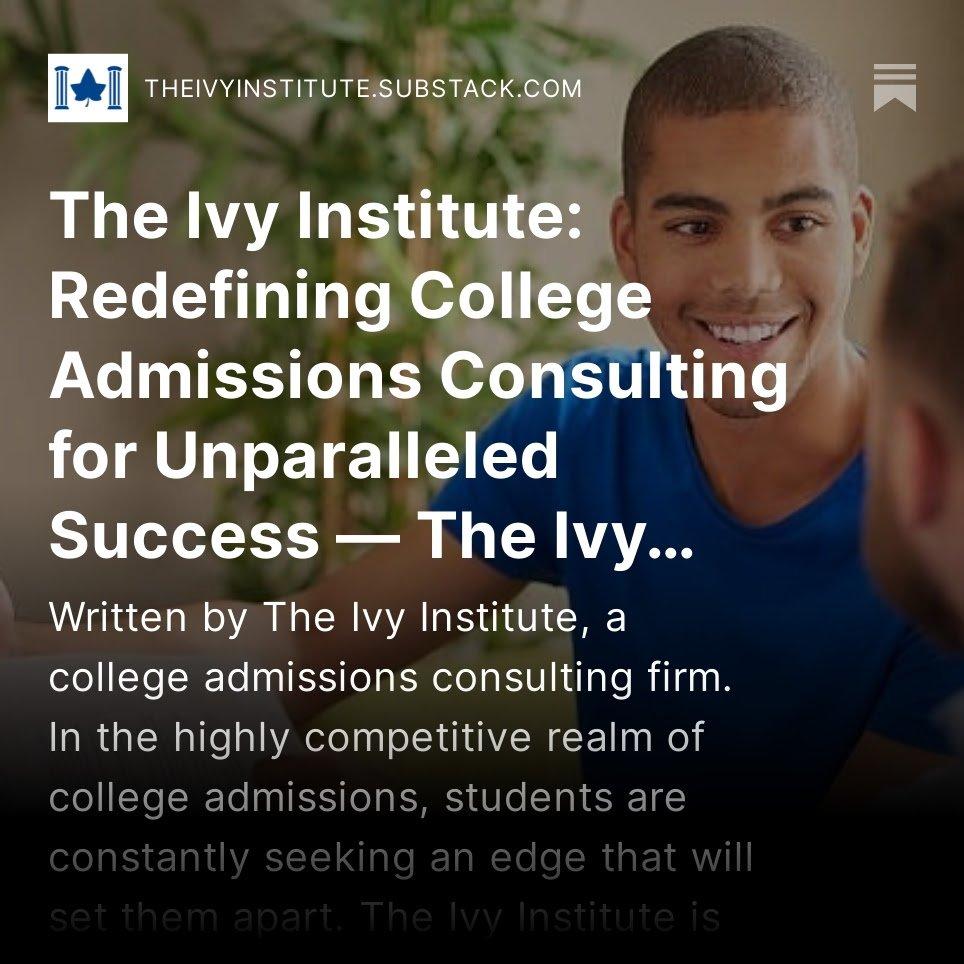In the increasingly competitive landscape of college admissions, the role of application consultants has emerged as a significant, albeit controversial, factor. These consultants, often catering to affluent families, offer personalized guidance and strategic insights designed to enhance a student’s prospects of securing a spot at prestigious institutions. While their services promise to demystify the labyrinthine admissions process, they also contribute to widening the gap between wealthy and less privileged applicants. This article delves into the implications of this growing industry, examining how it perpetuates educational disparities and raises critical questions about equity and fairness in higher education. By exploring the dynamics at play, we aim to shed light on the systemic challenges that continue to shape the future of college admissions.
Wealthy Access to College Consultants Amplifies Inequality
In an increasingly competitive landscape, the role of college application consultants has become a significant asset for students aiming to secure spots at top-tier institutions. However, this burgeoning industry primarily caters to affluent families, thereby accentuating existing disparities in the college admissions process. These consultants offer a range of services that include personalized essay coaching, interview preparation, and strategic application planning. The high costs associated with such comprehensive guidance effectively exclude lower-income students from accessing these resources, leaving them at a disadvantage compared to their wealthier peers.
This unequal access has several implications:
- Resource Allocation: Wealthy families can afford multiple consultations, ensuring every aspect of the application is polished.
- Insider Knowledge: Consultants often have insider knowledge of admissions processes, which they leverage to benefit their clients.
- Outcome Disparities: Students who receive professional guidance often have higher acceptance rates, skewing the demographics of elite institutions.
As the demand for these services grows, the gap widens, further entrenching the divide between those who can afford such advantages and those who cannot. Addressing this issue requires a reevaluation of the accessibility and affordability of college preparatory resources to ensure a more equitable playing field for all aspiring students.
The Role of Privilege in College Admissions Guidance
In the intricate landscape of college admissions, privilege plays a pivotal role in shaping outcomes. Families with substantial financial resources often have the luxury of hiring professional college application consultants, who offer personalized guidance and strategic advice tailored to maximize a student’s chances of acceptance. This creates a stark contrast to less affluent families who may rely solely on high school counselors, who are often overburdened and unable to provide the same level of individualized attention.
- Access to Expertise: Wealthier families can afford consultants who possess a deep understanding of admissions trends and can craft compelling narratives for applications.
- Tailored Strategies: Consultants can help students identify and emphasize unique strengths and extracurricular activities, providing a competitive edge.
- Extensive Resources: From mock interviews to essay workshops, these services offer resources that are often out of reach for the average applicant.
This disparity not only underscores the advantages enjoyed by privileged students but also highlights the systemic inequities within the college admissions process. As a result, the quest for higher education becomes yet another arena where economic disparities are starkly illuminated, prompting a need for critical examination and reform.

Unveiling the Disparities: How Consultant Fees Create Gaps
In the competitive landscape of college admissions, the cost of hiring a consultant can be prohibitive for many families, leading to a widening gap between those who can afford these services and those who cannot. Consultant fees, often ranging from hundreds to thousands of dollars, become a barrier to equal access to college preparatory resources. Families with limited financial means are left navigating the complex application process on their own, while wealthier families benefit from personalized guidance and strategic advice.
Key disparities created by consultant fees include:
- Access to Insider Knowledge: Consultants often provide insights into what specific colleges are looking for, information that can be elusive for those without access.
- Personalized Strategy: Wealthier students receive tailored application strategies, enhancing their chances of acceptance.
- Resource Allocation: Families with means can invest in test preparation, essay reviews, and extracurricular planning, further tipping the scales.
This imbalance underscores the need for systemic changes to ensure all students, regardless of economic background, have a fair shot at higher education opportunities.

Recommendations for Equitable College Consulting Practices
- Sliding Scale Fees: Implementing a sliding scale fee structure can make college consulting services more accessible to families from diverse economic backgrounds. This approach ensures that the financial burden of expert guidance does not fall disproportionately on those with fewer resources.
- Pro Bono Services: Encourage consultants to offer a percentage of their services on a pro bono basis, targeting underrepresented and underserved communities. This not only helps bridge the gap but also fosters a more inclusive environment in higher education.
- Partnerships with Schools: Forming partnerships with public schools and community organizations can facilitate workshops and seminars, providing valuable insights and resources to students who might not otherwise have access to private consulting.
- Comprehensive Online Resources: Develop and maintain a robust online platform with free, accessible resources such as webinars, guides, and forums. These tools can empower students to navigate the application process independently.
- Mentorship Programs: Establish mentorship networks connecting experienced consultants with aspiring students. This personal connection can provide guidance and motivation, helping to demystify the college application process.
By embracing these strategies, college consultants can play a pivotal role in leveling the playing field, ensuring that all students, regardless of their socioeconomic status, have an equal opportunity to pursue higher education. Such practices not only promote fairness but also enrich the college landscape with diverse perspectives and talents.



